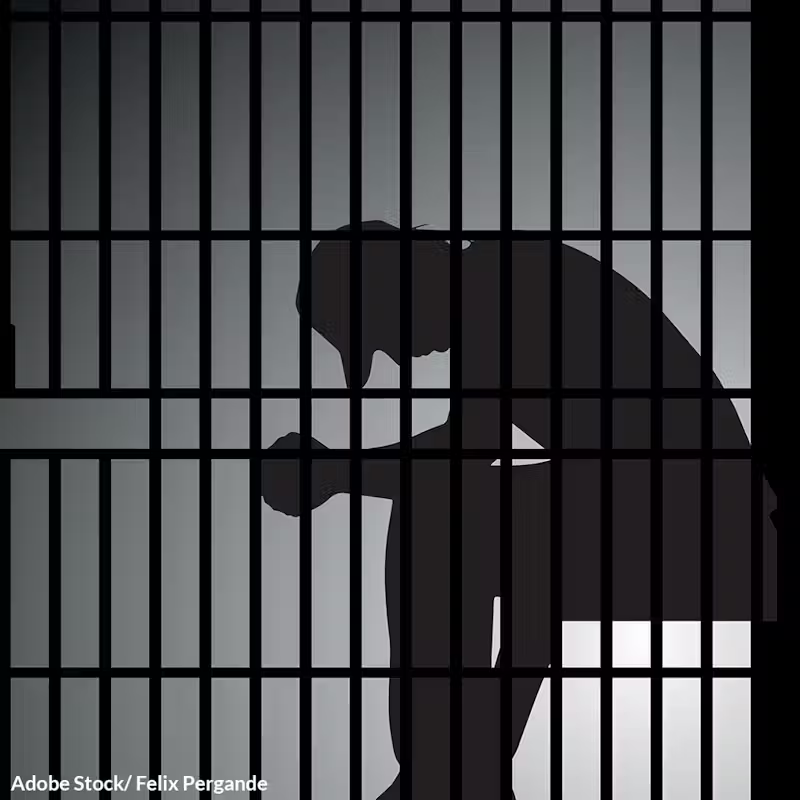End Legal Human Trafficking
11,239 signatures toward our 50,000 Goal
Sponsor: The Veterans Site
Stand up for human rights and ban for-profit prisons in New Mexico.

Since the country's first for-profit prison opened in Tennessee in 1984, hundreds more have shown up across the U.S. The number of individuals incarcerated by for-profit prisons has also seen a sharp increase, growing by 1,600% between 1990 and 20051.
Private prisons now hold about 11% of the nation's 193,000 federal prisoners. In New Mexico alone, nearly half of the state's entire prison population is incarcerated by for-profit prisons2.
Many of these prisoners face a struggle on top of their imposed sentences, as basic standards of health, safety, and human decency remain largely unregulated. In one case, a prisoner told medical staff that he was having trouble breathing. He was refused immediate care and told to fill out a written request for an appointment. Moments later, he was dead3.
With critical healthcare services intentionally delayed or denied in this manner, prisoners in for-profit prisons are dying from untreated HIV, untreated cancer, suicide, and heart attacks and seizures3.
For-profit prisons are motivated by profit, not the eventual reintegration or even the basic human rights of those inmates. Any money saved by cutbacks, no matter the effect on the prison population, is counted as revenue for these corporations.
Statistics show that nearly one in four black males born today can expect to be imprisoned during their lifetime, while more than 69% of black men who drop out of high school will end up incarcerated4.
Since 2016, migrant detainees have also been targeted with greater penalties, more time in prison, and higher profits for private prisons4.
In effect, the for-profit prison system is turning incarcerating minorities into a revenue stream.
The corporations that run for-profit prisons lobby for stronger enforcement efforts, less leniency in conviction and parole standards and criminalization of activities associated with lower socio-economic populations5.
Humans are not a commodity. To counter this trend, we need prison reform, not stronger penalties that unjustly target vulnerable populations.
Thirty states across the U.S. have so far banned for-profit prisons, and more may soon follow6.
Sign the petition below and send a message to New Mexico's Attorney General, to put people before profits and ban for-profit prisons today!
- Tara Joy, Wesley Anargus (2 February 2018), "The Problem with Private Prisons."
- Carl Takei, Senior Staff Attorney, ACLU Trone Center for Justice and Equality (12 August 2016), "End Prisons-for-Profit."
- Hauwa Ahmed, Center for American Progress (30 August 2019), "How Private Prisons Are Profiting Under the Trump Administration."
- Kara Gotsch and Vinay Basti, The Sentencing Project (2 August 2018), "Capitalizing on Mass Incarceration: U.S. Growth in Private Prisons."
- Catherine Kim, Vox (1 December 2019), "Private prisons face an uncertain future as states turn their backs on the industry."
The Petition:
Dear New Mexico Attorney General,
Americans are being sold for profit to private prison systems, and at a much higher rate in Nw Mexico than anywhere else in the Unites States. This "legal human trafficking" must end now.
For-profit prisons now hold about 11% of the nation's 193,000 federal prisoners. In New Mexico alone, nearly half of the state's entire prison population is incarcerated by private prisons. Many of these prisoners face a struggle on top off their imposed sentences, as basic standards of health, safety, and human decency remain largely unregulated.
Meanwhile, nearly one in four black males born today can expect to be imprisoned during their lifetime. And more than two-thirds of black men who drop out of high school will end up incarcerated. Since 2016, the Trump administration has also targeted migrant detainees with greater penalties, more time in prison and higher profits for private prisons.
For-profit prisons are motivated by profit, not the eventual reintegration of their prisoners, and certainly not the basic human rights of those inmates. Any money saved by cutbacks, no matter the effect on the prison population, is counted as revenue for these corporations.
In effect, the for-profit prison system is turning incarcerating minorities into a revenue stream.
This is unacceptable. Humans are not a commodity.
We need prison reform, not stronger penalties that unjustly target vulnerable populations. Thirty states across the U.S. have so far banned for-profit prisons, and more could soon follow.
I demand you rescind support of for-profit prisons and detention centers and ban them from our great state.
Sincerely,